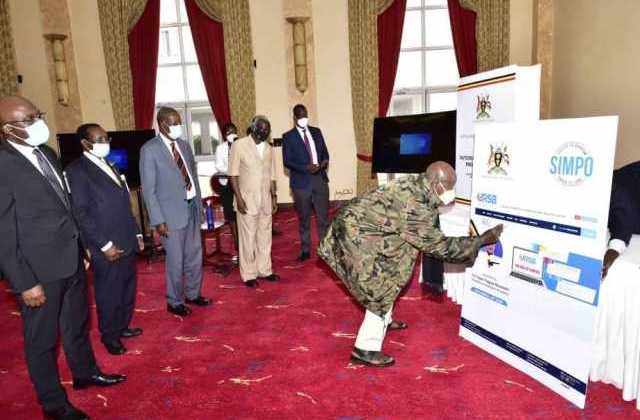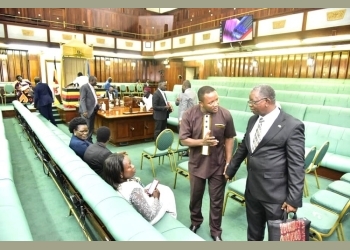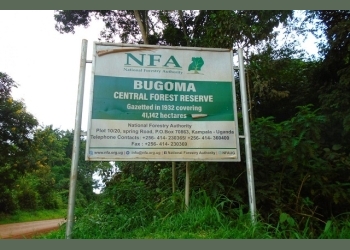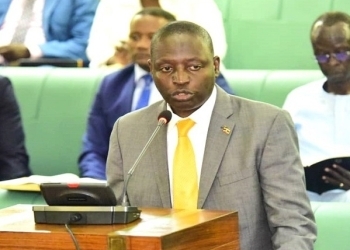
As Uganda celebrates the International Labour Day on 1st May, the Uganda Registration Services Bureau (URSB) celebrates the Workers of Uganda for being the champions of our nation’s national development. At the national level, the theme earmarked for the International Labour day celebrations falls within URSB’s mandate of enhancing creativity through commercialization of Intellectual Property. As we recognize the efforts of workers across the country, the year’s theme; “Enhancing Innovation for Increased Employment Creation and Labour Productivity; A Sustainable COVID-19 Response” highlights URSB’s important role to tap into the immense creative industry to create jobs for the Uganda citizenry.
URSB was established under the URSB Act CAP 210 of the laws of Uganda, with the mandate to inter alia promote, register and protect business enterprises, run the Security Interest in Movable Property Registry System (SIMPO), register Intellectual Property Rights, administration of marriages and provide insolvency services. URSB is proud to be part of the journey upon which nation’s economic growth is pegged. URSB continues to make commendable contribution towards facilitating public and private sector innovation by enhancing easier, faster and timely registration services that are credited for social & economic growth.
With the Government strategy aiming at fostering improved economic development, the Bureau continues to innovate and evolve in order to contribute to realizing this Government strategy. The Board assisted by management have set in place strategic initiatives that have seen URSB continue to be the centre of excellence for registration services.
Uganda on 26th April, 2021 joined the rest of the world to celebrate the World Intellectual Property Day to highlight the role that Intellectual Property (IP) rights play in encouraging innovation and creativity especially among the multitude of MSMEs that have had to face the relentless wrath of the pandemic for their survival. This year’s theme, IP & SMEs: Taking your ideas to the market focused on their vital contribution to Uganda’s economic configuration
The National Intellectual Property Office
URSB is Uganda’s National Intellectual Property Office, a role that has seen the Bureau initiate key innovation and creativity strategies to support the Intellectual Property mandate that is credited for the continued creativity across all sectors.
Among other planned activities, URSB identified Business Practitioners with a niche in developing and supporting growth of small businesses and engaged experts especially in the business support arena in order to save jobs that could have been affected by COVID --19
According to the World Intellectual Property Organization (WIPO), intellectual property refers to "creations of the mind: inventions, literary, and artistic works, and symbols, names, images, and designs used in commerce. IP is divided into two categories: industrial property, which includes inventions (patents), trademarks, industrial designs, and geographic indications of source; and copyright, which includes literary and artistic works such as novels, poems and plays, films, musical works, artistic works such as drawings, paintings, photographs and sculptures, and architectural designs. Rights related to copyright include those of performing artists in their performances, producers of phonograms in their recordings, and those of broadcasters in their radio and television programs.
National Intellectual Property Policy to stimulate Innovation
On 27th May, 2019, Cabinet approved the National Intellectual Property Policy 2019 whose objective is to stimulate and nurture innovation and creativity for socioeconomic development of the country. The policy will facilitate integration of intellectual property into national priority sectors and programs towards realization of national development goals. URSB was tasked with leading the implementation of the NIIP, a role that URSB has been fully immersed in.
URSB was under this role handed the task to lead a multi-institutional technical committee, to rally all stakeholders involved to work on strategies on how Uganda can advance the national and global sustainable economic growth through examining the transformative opportunities presented by intellectual property. Through this, URSB has been at the forefront of national growth and employment creation. URSB has engaged over 9 institutions charged with implementation of the policy to policy while opening up the related opportunities.
The policy will also facilitate the integration of Intellectual Property into national priority sectors and programs towards the realization of national development goals under vision 2040.
Protecting inventions & supporting creativity
URSB has championed Intellectual property protection which has been deemed critical for protecting Uganda’s proprietary designs, processes, and inventions that, if leaked to competitors or made public, could ruin the country's market advantage across the world. multi-institutional technical committee, under the same partnership with URSB will be presented to the president detailing how Uganda can advance the national and global sustainable economic growth through examining the transformative opportunities presented by intellectual property.
To support innovation across universities, URSB has over the years been involved in the establishment of Technology & Innovation Support Centres (TISC) project, an initiative of the World Intellectual Property Organization (WIPO) that aims to improve the quality of research by ensuring that researchers have free access to high quality information mostly available through patent and non-patent databases. The TISC project also aims to ensure that the Intellectual Property created from research is appropriately protected through proper licensing, commercialization and management. Presently, 29 centres have been opened up institutions of higher learning and are operational to support nascent innovation among the youth.
Employment through commercialization of Uganda’s unique gifts
To support commercialization of Uganda’s unique gifts, URSB is leading the consultations on the Geographical Indications (GI) Act and its implementation which aim at popularizing the protection of Uganda’s unique products.
The National Working Group led by URSB and composed of multi-sectoral stakeholders are holding consultative meetings needed for the popularization of GIs.
A geographical indication is a specific intellectual property right that designates a product from a specific region and whose characteristics result in both the natural conditions of its origin and the expertise of local producers. Geographical indications are frequent across the globe, particularly in Uganda where they remain untapped. Recognition of a geographical indication helps to build the productive and trade capacities of countries, and strengthens their capacity for trade negotiations
COVID-19 innovative opportunities
Innovative Ugandan enterprises have taken advantage of the NIIP roll-out to turn the COVID-19 crisis into opportunities not only to keep afloat, but to benefit from the immense openings. These openings include, but are not limited to, development of new technologies; research and development; performing arts; informal sector inventions; and other creative endeavors. As a result, significant IP assets have been generated, including patented inventions; copyrightable materials; valuable trade secrets; trademarks; and new plant varieties. By end of March 2021, over 1,244 local trademark applications had been submitted for registration since January 2020, while patent applications stood at 10
Improvement in formalising the economy
URSB has made contribution to formalization of Uganda’s economy, by exponentially growing the numbers of formal businesses registered. Formalization of the economy is vital in increasing the tax base and supporting innovation while creating employment. By end of March 2021, URSB had registered 795,612 companies and business names in the following sectors: Agriculture, Manufacturing, Construction, Mining, hotel and Real Estate, among others.











